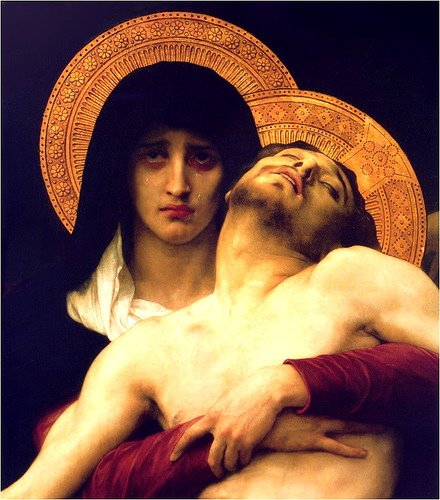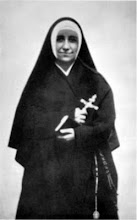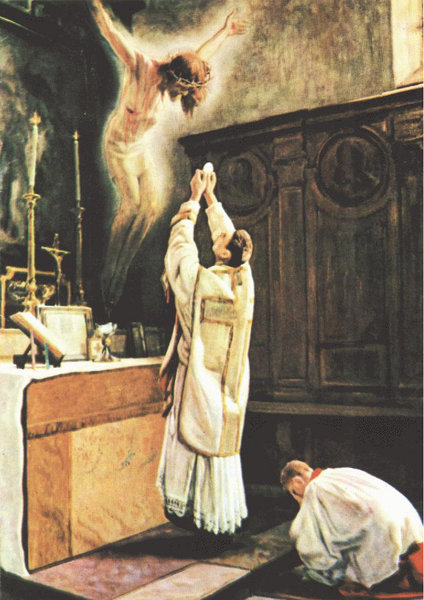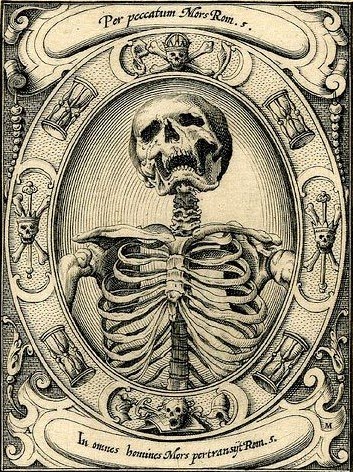DECEMBER.
1. Frequent confession is the cause of great good to the soul, because it purifies it, heals it, and confirms it in the service of God: we ought not therefore to omit confession on our fixed days for any business whatsoever; but go to confession first, and to business afterwards, and the first will help the last.
2. When we go to confession, we ought to persuade ourselves to find Jesus Christ in the person of our confessor.
3. Give me ten men really detached from the world, and I have the heart to believe I could convert the world with them.
4. He who communicates often, as he ought to do, brings forth good fruit, the fruit of humility, the fruit of patience, the fruit of all the virtues.
5. Penitents ought not to go to confession for temporal ends, to get alms and the like.
6. We ought to make no account of an immodest person, notwithstanding that he may possess other virtues.
7. The Holy Spirit says of prelates and pastors, He who hears and obeys his superiors, hears and obeys Me, and he who despises them, despises and disobeys Me.
8. If the servant of God would fain walk with more security through so many snares scattered in every place, he should have our Blessed Lady as his mediatrix with her Son.
9. The sick man may desire to get well, provided he seals his desire always with an “If it please God,” “If it is good for my soul;” for we can do many good things in health, which sickness hinders us from doing.
10. In sickness we ought to ask God to give us patience, because it often happens, that when a man gets well, he not only does not do the good he proposed to do when he was sick, but he multiplies his sins and his ingratitude.
11. The mole is a blind rat, which always stays in the ground; it eats earth, and hollows it out, but is never satisfied with it: so is the avaricious man or woman.
12. Penitents should never make vows without the advice of their spiritual fathers.
13. If we do make such vows, it is best to make them conditionally: for example, “I make a vow to have two masses said on S. Lucy’s day, with this bargain, If I can, If I do not forget it, because if I do not remember it I do not wish to be bound.”
14. When a man has to buy anything, he ought not to do so because he is moved by an attachment to the thing, but from want and necessity; for it will never do to buy attachments.
15. Certain little voluntary attachments of self-love must be cut through, and then we must dig round them, and then remove the earth, till we get down deep enough to find the place where they are rooted and interlaced together.
16. A person must be ready to endure, when through a virtuous motive he is mortified by others, and even when God permits him to be in bad odour with others, and regarded and driven away as an infected sheep.
17. Our enemy the devil, who fights with us in order to vanquish us, seeks to disunite us in our houses, and to breed quarrels, dislikes, contests, and rivalries, because while we are fighting with each other, he comes and conquers us, and makes us more securely his own.
18. He who does not think on the benefits he receives from God in this life, and on those greater ones his mercy has prepared in that other life of bliss, does not nourish love to God, but chills and freezes it.
19. If a soul could altogether abstain from venial sins, the greatest pain it could have would be to be detained in this life, so great would its desire be of union with God.
20. In the persecutions which bad men excite against piety and devotion, we must keep our eyes on God, whom we serve, and on the testimony of a good conscience.
21. How patiently Christ, the King and Lord of heaven and earth, bore with the apostles, enduring at their hands many incivilities and misbeliefs, they being but poor and rough fishermen! How much more ought we to bear with our neighbour, if he treats us with incivility.
22. We must give ourselves to God altogether.
23. God makes all his own the soul that is wholly given to him.
24. It is as a general rule a bad sign when a man has not a particular feeling of devotion on the chief feasts of the year.
25. Let us reflect that the Word left heaven, and stooped to become man for us.
26. Besides pardoning those who persecute us, we ought to feel pity for the delusion they are labouring under.
27. To one who really loves God, there is nothing more harassing or burdensome than life.
28. Let young men be cheerful, and indulge in the recreations proper to their age, provided they keep out of the way of sin.
29. Not to know how to deny our soul its own wishes, is to foment a very hot-bed of vices.
30. All created things are liberal, and show the goodness of the Creator: the sun scatters its light, the fire its heat; the tree throws out its arms, which are its branches, and reaches to us the fruit it bears: water, and air, and all nature express the liberality of the Creator, and we, who are his lively image, do not represent him, but through our degenerate manners deny Him in deeds while we are confessing Him with our mouths.
31. The hour is finished - we may say the same of the year; but the time to do good is not finished yet.






















